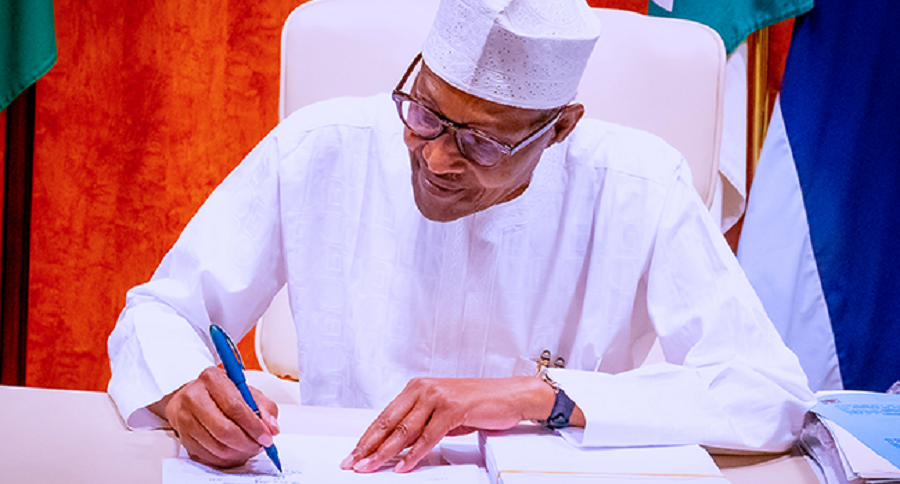President Muhammadu Buhari has approved the appointment of Hajiya Saratu Umar as Executive Secretary/Chief Executive Officer of the Nigerian Investment Promotion Commission (NIPC) for a period of five years.
Umaru will replace Yewande Sadiku who last year completed a five-year tenure as head of the Commission.
This was disclosed in a statement issued by Garba Shehu, media aide to the Presidency on Tuesday.
What they are saying
The Presidency stated that Hajiya Saratu Umaru holds a Bachelor of Science degree in Economics from the Ahmadu Bello University and an MBA in Finance and Banking.
”She is trained locally and internationally in all core aspects of her career, as well as in leadership, strategy, general management, risk management and corporate governance.
”Saratu Umar is a technocrat, reformer, strategist, economist, investment promotion expert, export development specialist, with experience in banking and finance, investment and consulting segments of the public and private sectors of Nigeria,” the statement said.
What you should know
- Umar’s appointment comes several months after Nairametrics reported that Yewande Sadiku, the former CEO and Executive Secretary of NIPC stepped aside after completing a five-year tenure.
- Sadiku had handed over to the most senior Director of the Commission, Mr Emeka Offor on Friday, 24th September 2021.
- Sadiku was also cleared by the Independent Corrupt Practices and Other Related Offences Commission of all allegations of corruption and fraud earlier levelled against her.
- The NIPC recently announced that Nigeria had a total of $23.30 billion in investment announcements for the year 2021, a 39% increase compared to $26.74 billion in 2020.
- Lagos State led the list for announcements at $8.7 billion, Nigeria’s Manufacturing sector had the highest number of projects (20) with $10.5 billion dollars representing 45% of investment announcements.












The NIPC recently announced that Nigeria had a total of $23.30 billion in investment announcements for the year 2021, a 39% increase compared to $26.74 billion in 2020.
Something wrong with these numbers.